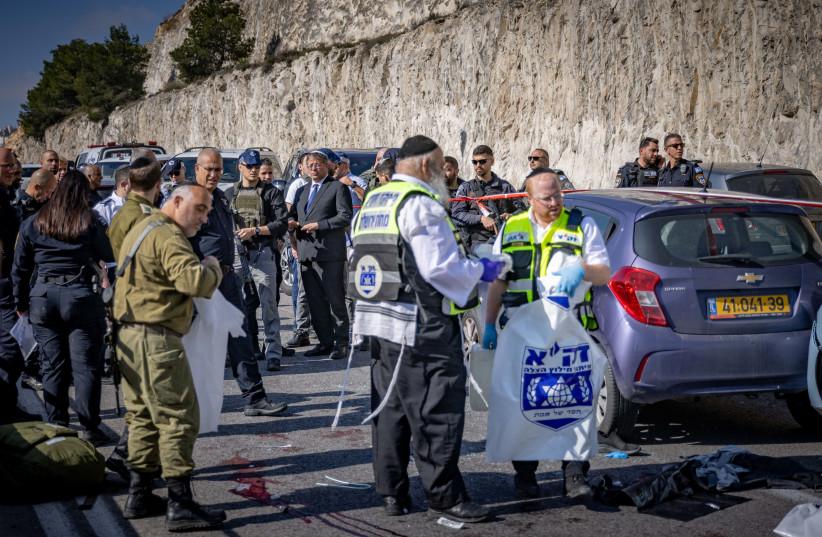With the war in Gaza to return the remaining 134 hostages and dismantle Hamas’s military capabilities after the horrific attacks of October 7, there has been less attention on the West Bank. That is a mistake, and it can cost us dearly.
The discourse on this very inflammable strip of land has been dismissive at best and sneering at worst, with only a few voices glancing a few steps ahead, beyond the current war, to what the day after might look like and how we survive this.
This entire week, the International Court of Justice in The Hague has been hearing arguments, from nearly every relevant state in the world, on the legality of Israel’s policies in the West Bank, Gaza Strip, and east Jerusalem.
The questions being posed are: How legal are these policies? Does breaking any of the rules make the occupation illegal, giving the court perhaps more leeway to tell Israel to pull completely from these territories? Was there illegal de facto annexation?
In Israeli media, this barely touched the radar. The Jerusalem Post’s Tovah Lazaroff and Eliav Breuer reported extensively on the push for Israeli unilateral recognition of a Palestinian state, which the Knesset overwhelmingly rejected.

At the World Court, the US, arguing on Israel’s behalf, rejected the court’s intervention, in the form of an Advisory Opinion, on a very messy and complicated issue, as “this conflict cannot be resolved through violence or unilateral actions. Negotiations are the path to lasting peace.”
Terror attacks continue
But the fatal, heartbreaking terrorist attack that took place on Thursday morning on Highway 1 serves as a painful reminder of the horrible and complicated situation that we are in here and how costly life can be.
Matan Elmaliach, 26, was killed and four people were wounded, two seriously, on the highway that connects Jerusalem to Ma’aleh Adumim. Among the wounded were two women, ages 23 and 30, in serious condition, plus two men in their 40s, one in moderate condition and one in light condition. Three terrorists killed at the scene by armed civilians were identified as Muhammed Zuwarah, 26, his brother Hathem Zuwarah, 31, and Ahmad al-Hush, 31. All three were Palestinian residents of Bethlehem.
The terrorists took advantage of a traffic jam at the A-Za’ayem checkpoint that separates the West Bank from Jerusalem. Vehicles coming from the direction of Ma’aleh Adumim and other points in the West Bank, including the Jordan Valley, were stuck in a protracted traffic jam as they waited to be given clearance to head onward in the directions of Jerusalem and Tel Aviv.
The terrorists arrived in two separate vehicles, fully armed with an M-16 rifle, a Carlo submachine gun, grenades, and cartridges. They exited their vehicles and began to shoot at people sitting inside their cars.
In the aftermath, one point of the public discourses that was brought up and shut down – categorized in the “We’ll discuss this after the war” category – was the question of where the soldiers were. Were they in the Gaza border area? Were they in the West Bank? This was explained away, and in any event, the question doesn’t address the problem. But it touched on an important division.
The hard truth is that the allocation of security forces is a lot more complicated than that. It is not either the Gaza border or the West Bank. The further along this goes, the more entrenched this war becomes, and the more the region and world react, the harder it will be to come out of this.
The answer to the question of whether a diplomatic resolution to the Israeli-Palestinian conflict is possible, and whether it can be done with two states, is dimming by the day. As this paper’s editorial said on Thursday: “Other ideas can be introduced to replace the classic two-state mirage that most Israelis no longer see as a path to peace.”
Until those ideas are introduced, tensions, hate, history, and disappointment continue to pile up on everyone’s shoulders. Our leaders need to begin talking about these ideas. We are years and years too late, and the bodies are piling up.
